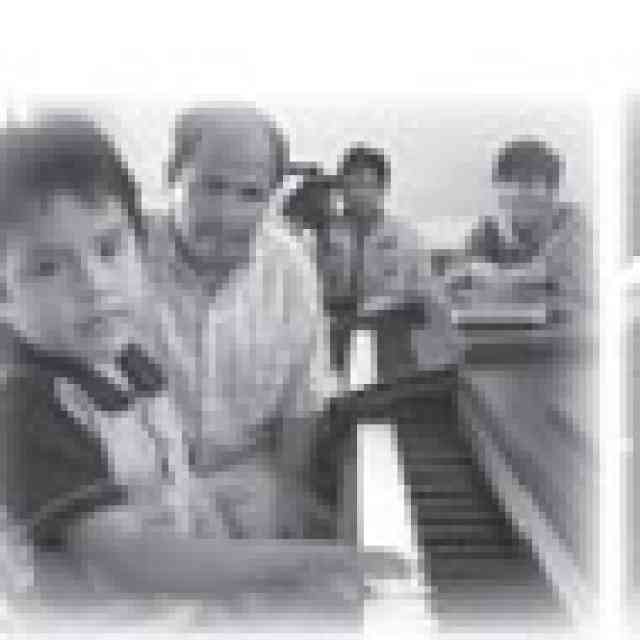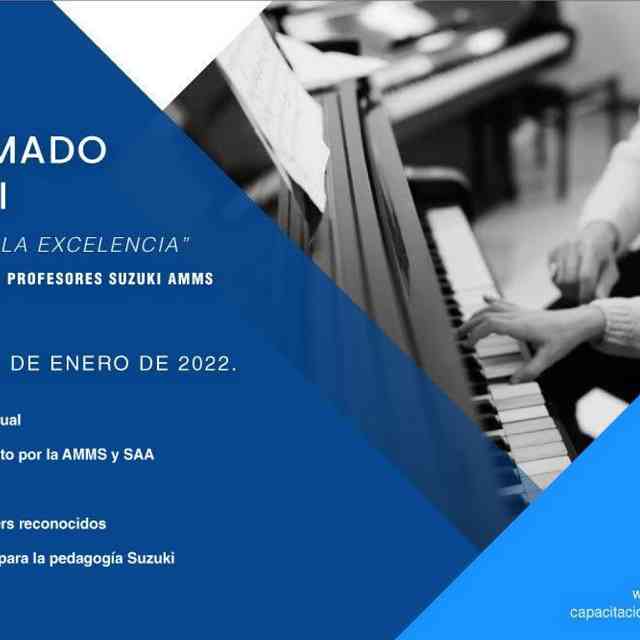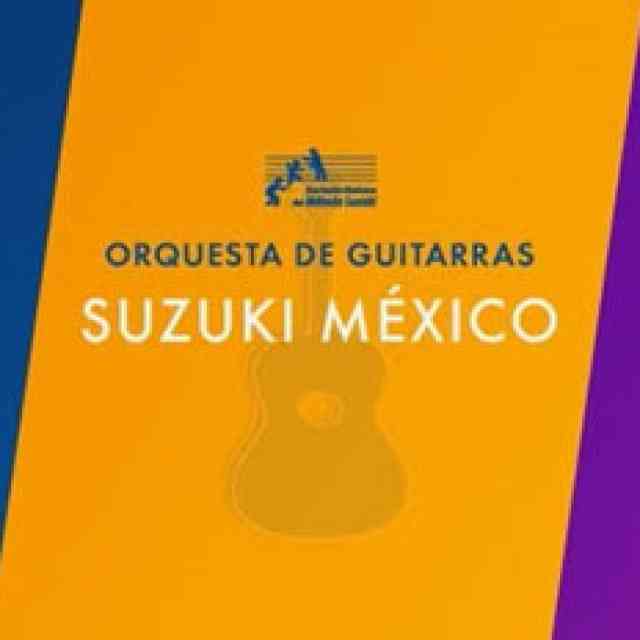4th National Suzuki Workshop
September 30-October 1st
Lima, Peru
Eric Escalaya, guitarist from Ayacucho had traveled over 12 hours by bus to participate in this two-day workshop which was sponsored by the Suzuki Association of Peru. He had been the only participant from Ayacucho attending the International Suzuki Festival which was held in January of this year. Now, eight months later, he traveled with five colleagues. Many of the 90 participants, had traveled overnight by bus from different parts of Peru to Lima on Friday, to return home on Sunday night and be back at school or work on Monday.

Student guitarist.
Jesus Campos from Ica has been the sole Suzuki teacher in his city for the last few years. Now he brought a delegation of 20 teachers, children and parents including five young people from the “Escuela de Musica” in Ica who hope to continue their Suzuki training and work together with Jesus to develop music education in their region. They left Ica at 4:30 in the morning in order to be ready to start classes by 9. Sabino Blancas, guitar teacher from Huancayo, traveled with over 30 teachers, children and parents overnight so that the children could receive classes, and the teachers could continue or initiate their training. These teachers share a common goal: to spread the Suzuki philosophy and build communities which will support and understand the importance of music in the lives of their young children.
Many teachers in Peru work under extremely challenging circumstances. Eric explained to me that he works in a public school where the teachers have not received their salaries for the past few months. Sabino told me how the piano students from Huancayo practice: they all come to the school where the piano is. Jesus brought a student playing a concerto on a violin far too big for him. We joked that Jesus would have to perform yet another miracle and produce a violin of the right size for the child, Moises.
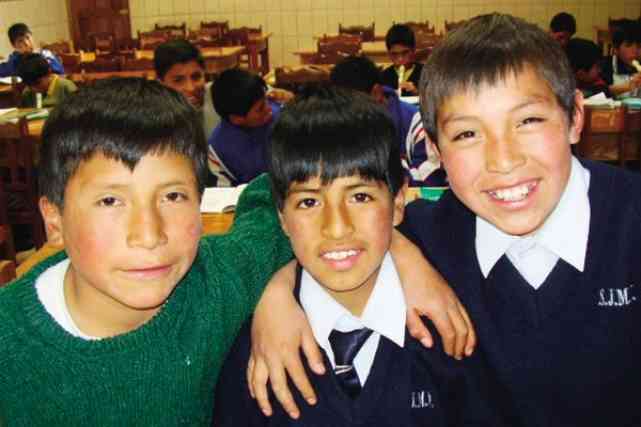
Students from Peru.
As a Teacher Trainer, I had a remarkable experience during this workshop. I did something I have never done anywhere, and it worked. I had sessions with all the teachers present: the more experienced teachers and the teachers who were new to the Suzuki approach. I asked the experienced teachers to give a short lesson to a student with everyone observing. I gently stopped the lesson when I felt it was appropriate and, through example, gave the teacher constructive feedback. I then congratulated the participating teacher, explaining to the new teachers how the class had reflected the Suzuki philosophy.
At the end of the session I asked the new teachers to tell me one important concept they had learned. They had experienced the essence of the philosophy, the participating teachers had demonstrated their understanding, and had acquired an additional skill to make their teaching more effective, and I had learnt that we, like the children, have to have the experience before we theorize!
In a combined group class of pianists and violinists, ranging from Pre-Twinkle through Book 4, there was a wonderfully spontaneous Bach Double Concerto performed by Mailin (7) from Huanuco, Branco (13) from Trujillo on second violin and Carlos (17) and Jorge (15), two young assistants from Lima on first violin. It was a true Suzuki moment.

Annika Petrozzi with cello students.
Violin, piano, recorder, cello and guitar teachers from the Asociación Suzuki del Peru gladly donated their time and expertise for this workshop, as did violinist Carlos Costa. The National Youth Orquestra system, under the leadership of el Maestro Wilfredo Tarazona, donated the use of the locale, in the basement of the National Museum. In developing countries, the difficult economic situation of the teachers and families living outside of the capital cities is a harsh reality. Most of these regions are neglected and seemingly forgotten by their own governments. In Peru’s capital city itself, there is a wide spectrum of economic realities with half the population living in poverty. The Suzuki Association of Peru is striving to implement Dr. Suzuki’s ideal that all children can learn. In a country like Peru, that cannot mean catering only to the elite. We must find a way to nurture all the children through music. Each year we take another tiny step….
The final concert was a moving experience. Lima was represented by children from a Children’s Home for abandoned boys, “Hogar Santa Maria”—cellists, violinists, pianists and recorder students, and by pianists from a school in a sprawling shanty town on the outskirts of Lima, Villa San Salvador. Amongst the teachers working with these children are Orlando and Heli Hilares, who themselves grew up in the Home and now want to give back what they received. The orchestra, made up of children from different parts of Peru, played Andina, from the Suite Puneña #2 by Victor Echave, a Peruvian composer. Pianist Luis Alfredo, student of Orlando, who teaches at the school on a very basic electric keyboard, gave a heart-warming performance of Musette, demonstrating beautiful rise and fall of the melodic line. Luis Alfredo practiced at home on a table for four months before finally acquiring a keyboard this past August.
The teachers told me they want to bring all their students to the annual Festival in January 2007. They share Dr Suzuki’s vision: a better world through music education. Jesus wants to host a Suzuki philosophy course in Ica, and Sabino plans to organize a Suzuki festival in Huancayo. Eric’s province of Ayacucho has been associated with acts of unspeakable violence and terrorism caused by the hopelessness of extreme poverty. Eric, with his colleagues, will establish La Escuela de Música Método Suzuki de Ayacucho.
By spreading the word, we will change the world!
“Music must not be the exclusive property of a few but accessible to all.”
—Zoltan Kodaly
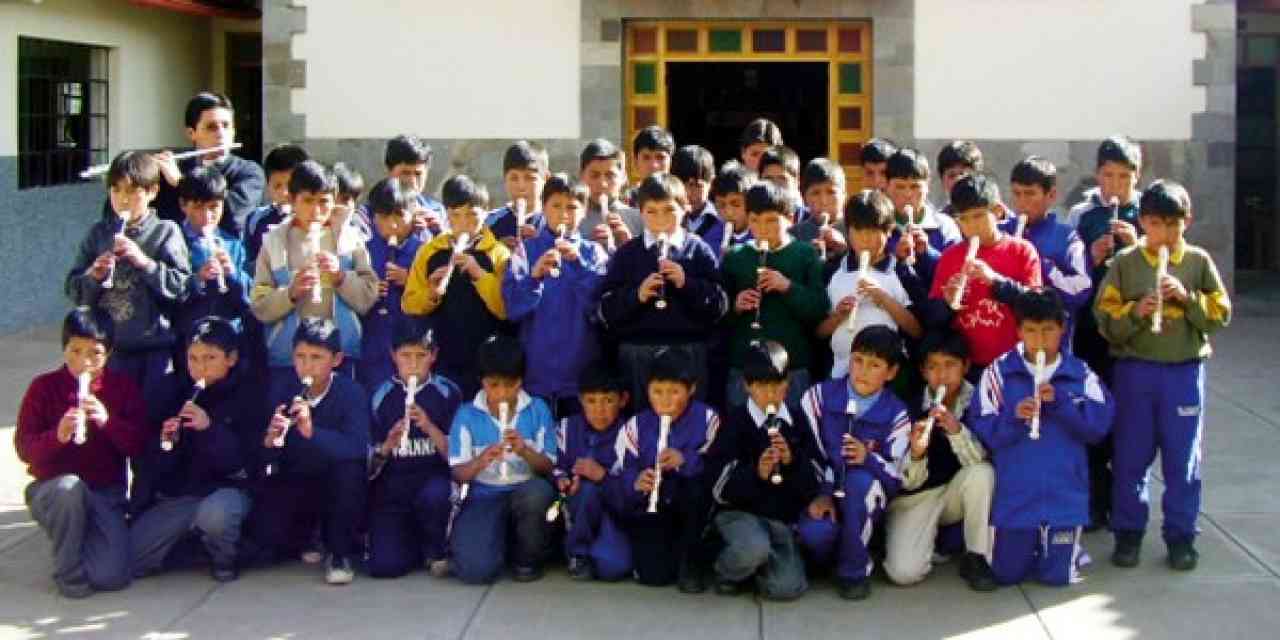
Recorder students from Peru.

